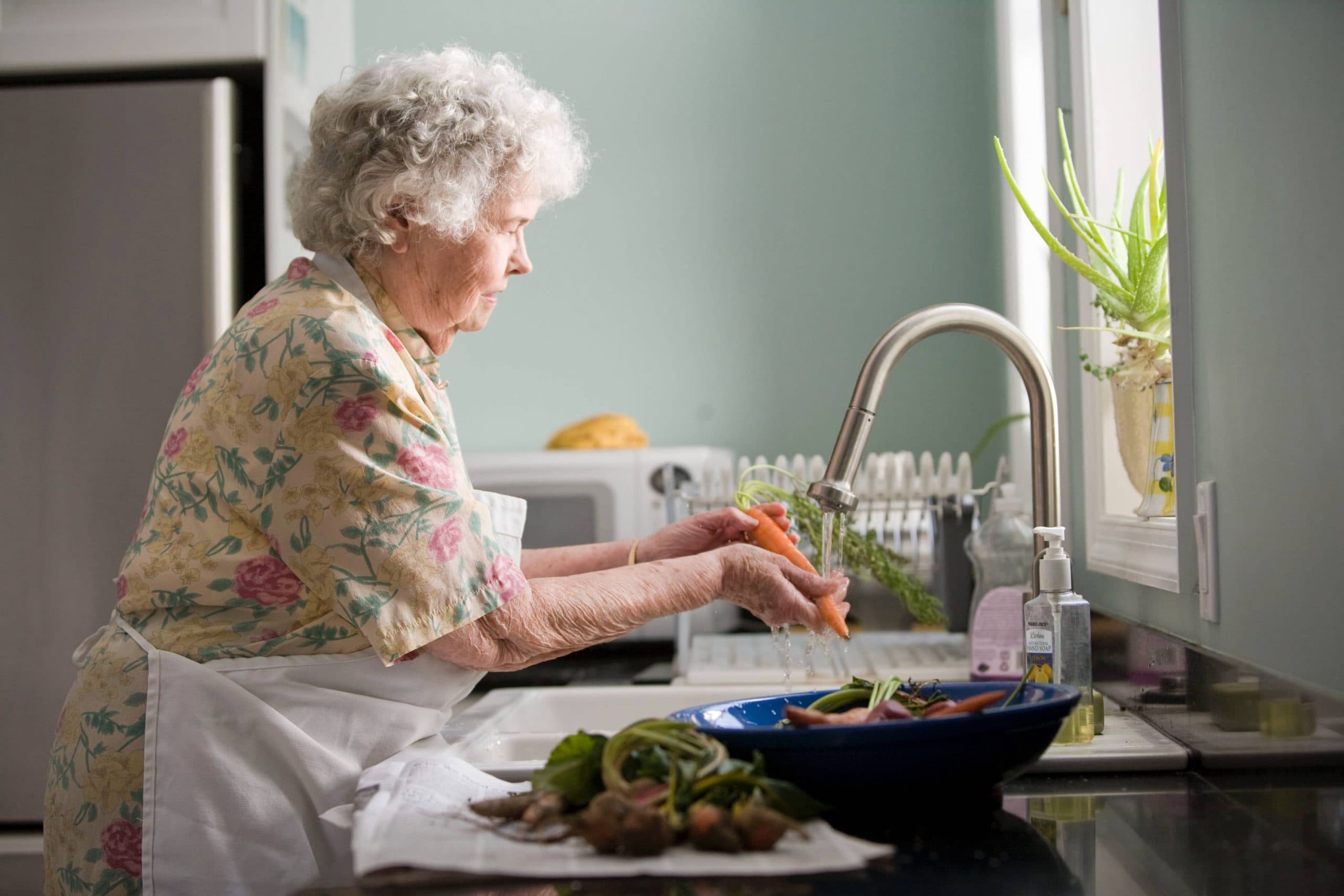At first, Emma* thought her father’s unusual behavior stemmed from grief over his wife, but after three years, it was continuing to alarm her. He forgot appointments and neglected to pay his bills. His business failed. There were never any groceries in the house and he started staying in bed all day. Finally, Emma had to make the difficult decision to take away his car as well.
Yet, Emma said, the idea that he had dementia didn’t enter her mind until she moved him into her home and took him to the Mayo Clinic, where they finally received a diagnosis of early-stage Alzheimer’s disease.
Out of Emma’s three siblings, only one brother initially stepped in to help. The toll of caring for her own young family and her father became so high that she grew physically ill and suffered from stress-related joint issues.
She decided she couldn’t take it anymore, so she sold her house and moved closer to her siblings. This access to help, she says, has made all the difference in the world.
Making a difficult decision
According to a 2009 survey by the National Alliance for Caregiving (NAC), 21 percent of caregivers have moved into the household as their loved one needing care. The impetus for merging households may come from an elder’s declining health and inability to do household chores or drive, or it may be sparked by depression after the loss of a spouse.
For many families, moving a parent into their home is a cultural expectation rather than a sacrifice. The rewards of a multi-generational household can be immeasurable.
Although living together is often the most convenient situation in the long run, many families make the decision abruptly, such as after an accident or hospital discharge, and then discover that more extensive planning would have mitigated some unexpected drawbacks.
Seattle mental health counselor Wendy Lustbader says an adult child often takes in a parent to return in good measure the care the parent bestowed on them. But such a big move isn’t for everyone, and there are several factors you should consider when making the decision:
Expense:
Will you have to cut back or give up employment to provide care?
Accessibility:
Does your home require modifications such as wheelchair-accessible entryways?
Space:
Is there enough room to ensure privacy for all family members?
Relationships:
Does your spouse or partner get along with your parent?
Children:
Are your children old enough to appreciate a grandparent moving in?
Lifestyle:
Are your lifestyles and values compatible?
Respite:
Can you rely on family or community resources to give you a break from caregiving?
Family dynamics:
Is there a history of conflict that may flare up once everyone is living together?
Expectations:
Do you expect your parent to help with household chores, finances, and childcare?
Communication is key
Moving a parent into your home requires intense communication among all family members and true support systems. Care professionals advise holding a family meeting to gain cooperation from everyone in the household and set ground rules for sharing chores and maintaining privacy.
There are multiple community-based support systems for the caregiver that focus on both medical and personal care. These include respite care, adult daycare, and in-home services to help with bathing, medication monitoring, and errands.
Big rewards
Today, Emma manages her father’s medications, takes his shirts to the laundry, and even gets up late at night to talk to him when he can’t sleep. Her father, now almost 80, has nine beloved grandchildren and a set of household chores that he loves to do.
At first Emma was upset, because this should have been her time in life to focus on her son and herself, but now she sees the many positives in having her father close by. He is safe and comfortable. He whistles and he laughs. He feels loved and respected. And that’s just about any of us can ever ask for.


